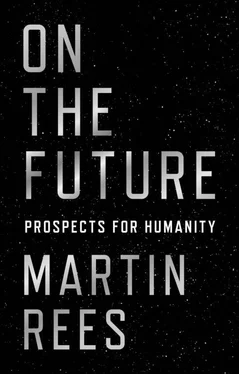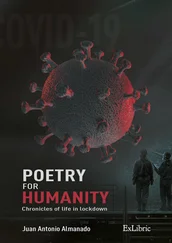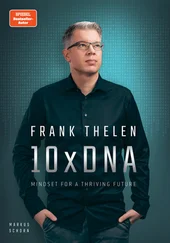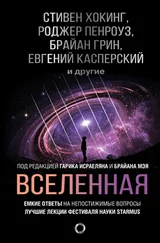It is impossible to show why certain things should not utterly destroy and end the human story… and make all our efforts vain… something from space, or pestilence, or some great disease of the atmosphere, some trailing cometary poison, some great emanation of vapour from the interior of the Earth, or new animals to prey on us, or some drug or wrecking madness in the mind of man.
I quote Wells because he reflects the mix of optimism and anxiety—and of speculation and science—which I will try to convey in this book. Were he writing today he would be elated by our expanded vision of life and the cosmos, but he would be even more anxious about the perils we face. The stakes are indeed getting higher; new science offers huge opportunities, but its consequences could jeopardise our survival. Many are concerned that it is ‘running away’ so fast that neither politicians nor the lay public can assimilate or cope with it.
* * *
You may guess that, being an astronomer, anxiety about asteroid collisions keeps me awake at night. Not so. Indeed, this is one of the few threats that we can quantify—and be confident is unlikely. Every ten million years or so, a body a few kilometres across will hit the Earth, causing global catastrophe—so there are a few chances in a million that such an impact occurs within a human lifetime. There are larger numbers of smaller asteroids that could cause regional or local devastation. The 1908 Tunguska event, which flattened hundreds of square kilometres of (fortunately unpopulated) forests in Siberia, released energy equivalent to several hundred Hiroshima bombs.
Can we be forewarned of these crash landings? The answer is yes. Plans are afoot to create a data set of the one million potential Earth-crossing asteroids larger than 50 metres and track their orbits precisely enough to identify those that might come dangerously close. With the forewarning of an impact, the most vulnerable areas could be evacuated. Even better news is that we could feasibly develop spacecraft that could protect us. A ‘nudge’, imparted in space several years before the threatened impact, would only need to change an asteroid’s velocity by a few centimetres per second to deflect it from a collision course with the Earth.
If you calculate an insurance premium in the usual way, by multiplying probability by consequences, it turns out to be worth spending a few hundred million dollars a year to reduce the asteroid risk.
Other natural threats—earthquakes and volcanoes—are less predictable. So far there is no credible way to prevent them (or even predict them reliably). But there’s one reassuring thing about these events, just as there is about asteroids: their rate isn’t increasing. It’s about the same for us as it was for Neanderthals—or indeed for dinosaurs. But the consequences of such events depend on the vulnerability and value of the infrastructure that’s at risk, which is much greater in today’s urbanised world. There are, moreover, cosmic phenomena to which the Neanderthals (and indeed all pre-nineteenth-century humans) would have been oblivious: giant flares from the Sun. These trigger magnetic storms that could disrupt electricity grids and electronic communications worldwide.
Despite these natural threats, the hazards that should make us most anxious are those that humans themselves engender. These now loom far larger, and they are becoming more probable, and potentially more catastrophic, with each decade that passes.
We’ve had one lucky escape already.
In the Cold War era—when armament levels escalated beyond all reason—the superpowers could have stumbled towards Armageddon through muddle and miscalculation. It was the era of ‘fallout shelters’. During the Cuban missile crisis, my fellow students and I participated in vigils and demonstrations—our mood lightened only by the ‘protest songs’, such as Tom Lehrer’s lyrics: ‘We’ll all go together when we go, all suffused with an incandescent glow’. But we would have been even more scared had we truly realised just how close we were to catastrophe. President Kennedy was later quoted as having said that the odds were ‘somewhere between one out of three and even’. And only when he was long retired did Robert McNamara state frankly that ‘we came within a hairbreadth of nuclear war without realizing it. It’s no credit to us that we escaped—Khrushchev and Kennedy were lucky as well as wise’.
We now know more details of one of the tensest moments. Vasili Arkhipov, a highly respected and decorated officer in Russia’s navy, was serving as number two on a submarine carrying nuclear missiles. When the United States attacked the submarine with depth charges, the captain inferred that war had broken out and wanted the crew to launch the missiles. Protocol required the top three officers on board to agree. Arkhipov held out against such action—and thereby avoided triggering a nuclear exchange that could have escalated catastrophically.
Post-Cuba assessments suggest that the annual risk of thermonuclear destruction during the Cold War was about ten thousand times higher than the mean death rate from asteroid impact. And indeed, there were other ‘near misses’ when catastrophe was only avoided by a thread. In 1983 Stanislav Petrov, a Russian Air Force officer, was monitoring a screen when an ‘alert’ indicated that five Minuteman intercontinental ballistic missiles had been launched by the United States towards the Soviet Union. Petrov’s instructions, when this happened, were to alert his superior (who could, within minutes, trigger nuclear retaliation). He decided, on no more than a hunch, to ignore what he’d seen on the screen, guessing it was a malfunction in the early warning system. And so it was; the system had mistaken the reflection of the Sun’s rays off the tops of clouds for a missile launch.
Many now assert that nuclear deterrence worked. In a sense, it did. But that doesn’t mean it was a wise policy. If you play Russian roulette with one or two bullets in the cylinder, you are more likely to survive than not, but the stakes would need to be astonishingly high—or the value you place on your life inordinately low—for this to be a wise gamble. We were dragooned into just such a gamble throughout the Cold War era. It would be interesting to know what level of risk other leaders thought they were exposing us to, and what odds most European citizens would have accepted, if they’d been asked to give informed consent. For my part, I would not have chosen to risk a one in three—or even a one in six—chance of a catastrophe that would have killed hundreds of millions and shattered the historic fabric of all European cities, even if the alternative were certain Soviet dominance of Western Europe. And, of course, the devastating consequences of thermonuclear war would have spread far beyond the countries that faced a direct threat, especially if a ‘nuclear winter’ were triggered.
Nuclear annihilation still looms over us: the only consolation is that, thanks to arms control efforts between the superpowers, there are about five times fewer weapons than during the Cold War—Russia and the United States each have about seven thousand—and fewer are on ‘hair trigger’ alert. However, there are now nine nuclear powers, and a higher chance than ever before that smaller nuclear arsenals might be used regionally, or even by terrorists. Moreover, we can’t rule out, later in the century, a geopolitical realignment leading to a standoff between new superpowers. A new generation may face its own ‘Cuba’—and one that could be handled less well (or less luckily) than the 1962 crisis was. A near-existential nuclear threat is merely in abeyance.
Chapter 2will address the twenty-first-century sciences—bio, cyber, and AI—and what they might portend. Their misuse looms as an increasing risk. The techniques and expertise for bio- or cyberattacks will be accessible to millions—they do not require large special-purpose facilities like nuclear weapons do. Cybersabotage efforts like ‘Stuxnet’ (which destroyed the centrifuges used in the Iranian nuclear weapons programme), and frequent hacking of financial institutions, have already bumped these concerns up the political agenda. A report from the Pentagon’s Science Board claimed that the impact of cyberattack (shutting down, for instance, the US electricity grid) could be catastrophic enough to justify a nuclear response. [4]
Читать дальше


![Мартин Рис - Всего шесть чисел. Главные силы, формирующие Вселенную [litres]](/books/414169/martin-ris-vsego-shest-chisel-glavnye-sily-formir-thumb.webp)









